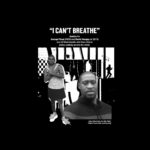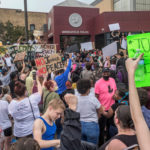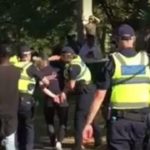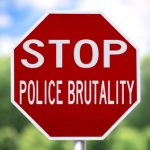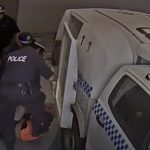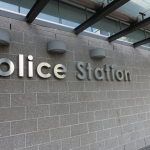Stop Police Brutality: NSW Police Officer Assaults Indigenous Teen
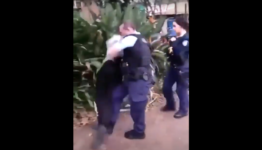
As groups of police officers in the United States put down their weapons and stood alongside protesters railing against the death of black men in custody, video footage emerged of an Indigenous teenager being thrown to the ground by a New South Wales police officer in Surry Hills, Sydney.
Over the past week, tensions have escalated around the world in the aftermath of George Floyd, with thousands taking to the streets to protest his horrific death at the hands of police.
And here in Australia, ‘Black Lives Matter’ undertook a rally of its own in Sydney yesterday.
On the eve of that protest, video footage emerged of a police officer pinning the arms of a 16-year old Indigenous boy behind his back, turning him around and performing a leg sweep resulting in the teen’s body and head being slammed to the ground.
As the boy lays on the ground, he makes high-pitched squeal and one of his friends can be heard saying: “You just slammed him on his face.”
Internal NSW police investigation
According to a statement from the NSW Police Force, officers were patrolling a park when they approached and spoke to a group of teenagers. They claim the teen in question “threatened” an officer, before being placed under arrest. There was no mention of the manner of “arrest”. The teen taken to the Surry Hills Police Station and later to St Vincent’s Hospital for treatment.
The boy’s family has told media he has multiple injuries as a result of the assault.
The officer responsible has been placed on restricted duties and an investigation is underway by Professional Standards Command – the internal investigation unit of the NSW Police Force.
The teen has not been charged with any offence.
Aboriginals still die at alarming rates in custody
It has been more than 30 years since Australia started seriously examining its own problem with Indigenous deaths in custody, but it is still an issue that is far from resolved, and it does not attract either the enormous social indignation that’s been sparked by the death of George Floyd, nor the dedicated political interest it deserves.
A good many of the recommendations made by the 1987 Royal Commission into Aboriginal Deaths in Custody were never implemented, and, as a result, hundreds more Aboriginals have died in custody since. Today Aboriginal and Torres Strait Islander people are the most incarcerated people on the planet, and it has been reported that since the Royal Commission, there have been a further 400 deaths in custody.
In fact, one Australian case that bears similarities to that of George Floyd is the 2015 death of Dunghutti man David Dungay who died in a Sydney prison in 2015 after being physically restrained by officers, and after repeatedly exclaiming “I can’t breathe.” No one has ever been charged over Mr Dungay’s death.
While the world cries out at the injustice of what happened to George Floyd we must not forget our own Indigenous people who come up against racism in the police and justice system every day,
Their cases though, tend not to attract worldwide attention the way that George Floyd’s death has done, but it does not mean the injustice is any less significant.
The use of excessive force constitutes assault
Section 231 of the Law Enforcement (Powers and Responsibilities) Act 2002 makes clear that police officers can only use “such force as is reasonably necessary” to arrest a person.
If a police officer uses excessive force during an arrest, a person may be able to rely on self-defence under section 418 of the NSW Crimes Act to defeat a charge of resisting or assaulting a police officer in the execution of his or her duty.
Section 418 says that a person is not guilty of an offence if:
- He or she reasonably believed that the conduct was necessary to defend themselves or another person, and
- The conduct was reasonable in the circumstances as the person perceived them.
Self-defence is the most commonly used defence to charges of resisting arrest and assaulting police.
It is also important to be aware that the use of excessive force by police officers without legal justification amounts to an assault under the criminal law, although officers in Australia are rarely disciplined let alone criminally prosecuted for the illegal use of physical force.



